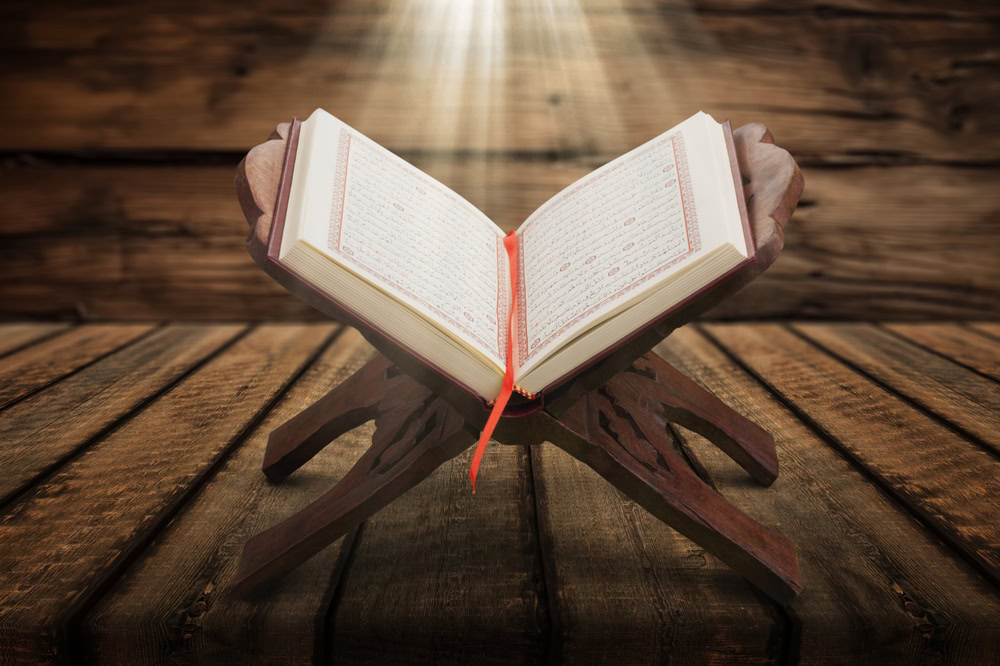When Does a Prophetic Hadith Abrogate a Ruling in the Quran?
Answered by Shaykh Anas al-Musa
Question
When does a Prophetic hadith abrogate a ruling in the Quran?
Answer
In the Name of Allah, the Merciful and Compassionate.
All praise is due to Allah, Lord of all worlds, and peace and blessings be upon the Messenger sent as a mercy to the worlds, our Master and Prophet, Muhammad, and his Family and Companions.
Definition of Abrogation
Abrogation (naskh) is the removal of a previous ruling by a subsequent ruling from the Lawgiver (Allah). [Zarkashi, al-Burhan fi ‘Ulum al-Quran; Suyuti, al-Itqan; ‘Itr, ‘Ulum al-Quran; Qattan, Mabahith fi ‘Ulum al-Quran; al-Muqaddimat al-Asasiyya fi ‘Ulum al-Quran; Subhi Salih, Mabahith fi ‘Ulum al-Quran]
Hanafis
Scholars have differed on the permissibility of the Quran being abrogated by the Sunna (Prophetic traditions). The Hanafis permitted this if the Sunna came in a manner that necessitated certainty and was not from solitary reports (Ahad).
This means that the Sunna that can abrogate the Quran must be mutawatir (mass-transmitted) and leads to certainty, such as the hadith on wiping over the khuffs (leather socks).
The Prophet (Allah bless him and give him peace) does not abrogate the Quran unless it is revealed to him, as both are revelations from Allah. [Jassas, al-Fusul fi al-Usul; Abu al-Hasan al-Mu‘tazili, al-Mu‘tamad fi Usul al-Fiqh; Sam‘ani, Qawa‘id al-Adilla fi al-Usul; Kasani, Bada’i‘ al-Sana’i‘]
Malikis
Some Maliki scholars also permitted the Quran to be abrogated by the Sunna, using the hadith “There is no bequest for an heir” to argue that it abrogated the ruling of the verse:
“It is prescribed that when death approaches any of you—if they leave something of value—a will should be made in favor of parents and immediate family with fairness. (This is) an obligation on those who are mindful (of Allah).” [Quran, 2:180]
They argued that the Prophet (Allah bless him and give him peace) is proven truthful, and it does not matter whether a general verse is specified by explaining that it pertains to certain individuals or certain times. If it is permissible for the Prophet (Allah bless him and give him peace) to specify individuals by his explanation, it is likewise permissible for him to specify times by his explanation, as it is similar. [Ibn Qassar, al-Muqaddima fi al-Usul]
Imam Abu al-Ma‘ali al-Juwayni also allowed the abrogation of the Quran by the Sunna, saying:
“The Messenger of Allah (Allah bless him and give him peace) does not rule by his own opinion. Rather, he speaks what he is commanded by revelation or inspiration. Those who permit ijtihad (independent reasoning) for the messengers say their ijtihad leads them to know Allah’s command without doubt, unlike our ijtihad in speculative matters.
Thus, the Messenger (Allah give him peace) is conveying from his Lord, and the matter is truly from Allah. If a ruling is established by a verse from the Book of Allah, and then the Messenger of Allah (Allah bless him and give him peace) informs of its abrogation, he is reporting from Allah, just as the words of the Quran indicate the speech of Allah. The essence is that this is the abrogation of a ruling established by the speech of Allah, though we come to know Allah’s speech in one of the rulings through recitation and in the abrogation through the words of the Messenger of Allah (Allah bless him and give him peace)…” [Juwayni, al-Talkhis fi Usul al-Fiqh]
Note
Some scholars have denied the permissibility of abrogating the Quran by the Sunna. They argue that no Sunna has abrogated the Quran, citing the verse:
“If We ever abrogate a verse or cause it to be forgotten, We replace it with a better or similar one.” [Quran, 2:106]
They argue that the Sunna cannot be better or similar to the Quran in any aspect. [Jassas, al-Fusul fi al-Usul]
May Allah bless the Prophet Muhammad and give him peace, and his Family and Companions.
[Shaykh] Anas al-Musa
Shaykh Anas al-Musa, born in Hama, Syria, in 1974, is an erudite scholar of notable repute. He graduated from the Engineering Institute in Damascus, where he specialized in General Construction, and Al-Azhar University, Faculty of Usul al-Din, where he specialized in Hadith.
He studied under prominent scholars in Damascus, including Shaykh Abdul Rahman al-Shaghouri and Shaykh Adib al-Kallas, among others. Shaykh Anas has memorized the Quran and is proficient in the ten Mutawatir recitations, having studied under Shaykh Bakri al-Tarabishi and Shaykh Mowfaq ‘Ayun. He also graduated from the Iraqi Hadith School.
He has taught numerous Islamic subjects at Shari‘a institutes in Syria and Turkey. Shaykh Anas has served as an Imam and preacher for over 15 years and is a teacher of the Quran in its various readings and narrations.
Currently, he works as a teacher at SeekersGuidance and is responsible for academic guidance there. He has completed his Master’s degree in Hadith and is now pursuing his Ph.D. in the same field. Shaykh Anas al-Musa is married and resides in Istanbul.
